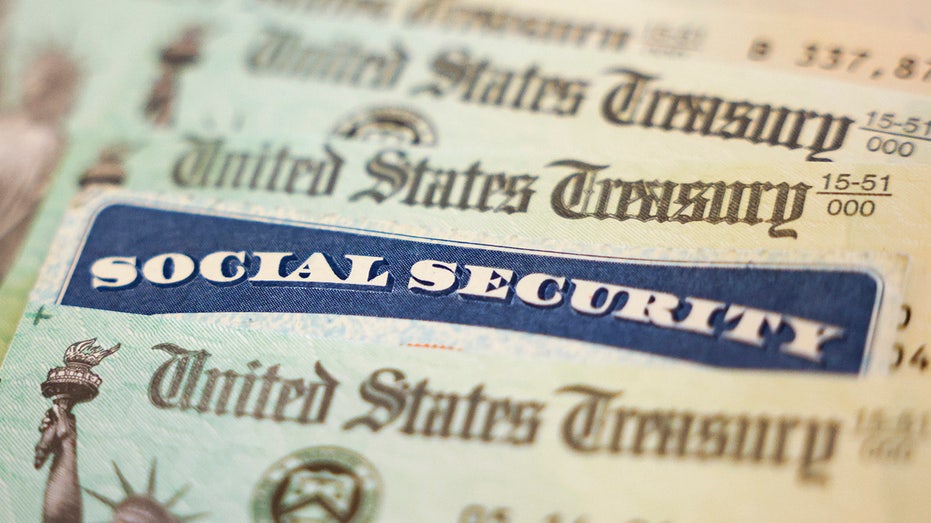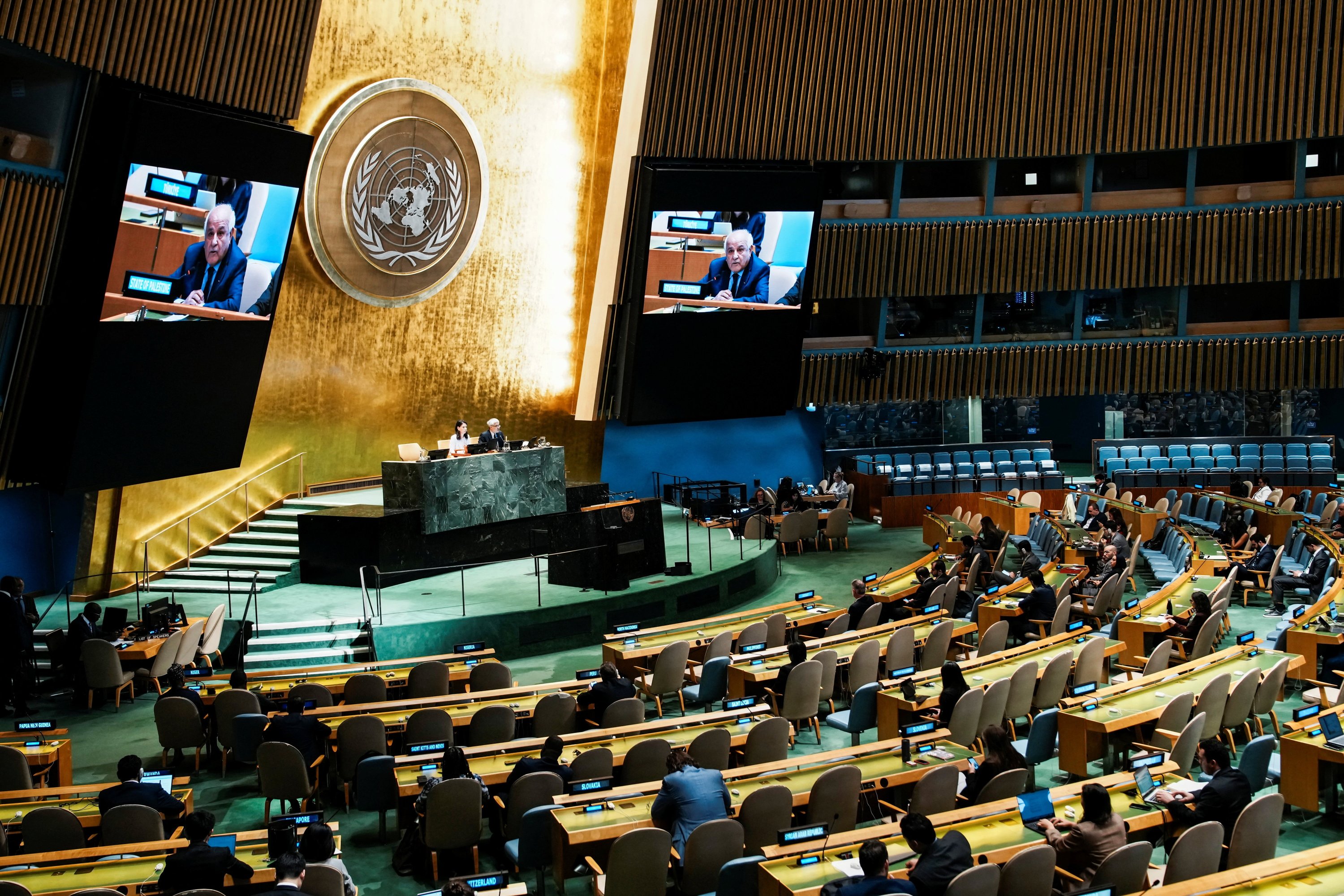The article shown below needs no commentary, it stands on its own feet.
"Free Gaza, free Palestine: Is Trump the Hitler of our time?"
Sep 15, 2025 - 12:05 am GMT+3
" Posters depict U.S. President Trump and Israeli Prime Minister Netanyahu
in Nazi uniform and regalia, Berlin, Germany, Sept. 6, 2025. (EPA Photo"
"Netanyahu is the actual Hitler of our time and the 64,000 killed Gazans prove it"
"The original chant went like this: “Free D.C., free Palestine! Trump
is the Hitler of our time!” Well, if you ask me, D.C. in the United
States is a free city. The deployment of a couple of hundred National
Guard personnel there does not make it unfree. It is one of President
Donald Trump’s fake crises; he wants to derail the real issues the U.S.
is currently facing. What he is doing and the way he is doing it would
make him Benito Mussolini at most, not Adolf Hitler.
Thank Goodness, the young Americans woke (no pun intended!) up on
time and realized that he has betrayed his promises that America was
going to be "the first" in his agenda – which did not happen – and that
he was going to end all the wars NeoCons, Globalists, and
Interventionists started in the Middle East – which he didn’t.
He must have seen the light through the nick that those who started
these wars put in his ear on July 13, 2024! He must have understood what
they meant by this warning shot. Therefore, he was not going to have
any Obama Moment inspiring hope and change, but he kept telling people
he would Make (only) America Great Again, forgetting the other country,
which was in a hurry to become "Greater."
Trump used to disparage these two men: The Little Marco (Marco
Rubio), the former senator from Florida he would make fun of, but he
eventually became the head of four government – outdoing Henry
Kissinger, famous secretary of state in the 70s, and even China's leader
Xi Jinping – (named the "Secretary of Everything" by The New York
Times), and Pete Hegseth, who has “the absolute and complete authority”
(not only on the drugs he used to buy as a TV commentator but) on the
wars the U.S. Department of War,
wants to continue ... These two men asked Trump one afternoon to rush
back to the White House immediately from his endless golf shenanigans,
and “briefed” him on the urgent need to give the green light to Israel’s
sweeping strike on Iranian nuclear and military targets, now.
Nobody yet knows how these two men convinced Trump to change his
attitude on Israel’s Iran War. Only the previous day, he restated his
total objection to any Israeli attacks on Iran and Gaza. But, after the
evening briefing at the White House in Washington, D.C., "We had a clear
U.S. green light," Israeli officials were quoted as saying in Tel Aviv.
Like almost all those people who have narcissistic personality
disorder, Trump, like Hitler, enjoys holding all reins himself; even if
he is not holding them, he likes to think that he is. Hitler, a
third-rate corporal, thought he was an uber-Marshal over the
war-hardened Prussian generals conducting the war to the Final Victory.
He only schlepped himself and his mistress to joint-suicide and Germany
to an unprecedented disaster.
Nonetheless, whatever Trump does (yet), in my humble opinion, cannot
make him the Hitler of our time. He is a willing or unwilling stooge of
the real Hitler of our time: Israeli Prime Minister Benjamin Netanyahu.
Actually, not our time, but all times!
Real Hitler is Netanyahu
Benjamin Mileikowsky, who, like all successful stage and screen
personalities, renamed himself "Netanyahu" (gift of Jehovah, in Hebrew),
proved that he could beat not only Hitler himself but the Devil at
their own game! He is wanted by the International Criminal Court (ICC)
for War Crimes, and his Mussolini, that is, Donald Trump, sanctions the elected ICC officials.
Trump calls on Hamas to evaluate his last deal offer to them and to Netanyahu. Still, Netanyahu attacks the place where the Hamas leaders met to weigh the cease-fire proposal to kill all the Hamas leadership
and sink the deal once again. (But luckily, its top leaders survived
the strike, yet the son of Khalil al-Hayya, Hamas’ leader for Gaza and
its top negotiator, three bodyguards, and the head of al-Hayya’s office
were killed.) The U.S. officials admit that they knew about it in
advance, and the British and U.S. aerial tankers refueled the Israeli
jets on their way to Qatar.
As usual, Trump said he was very unhappy
about the Israeli strike in Doha, which Israel had not informed him in
advance and the United Kingdom Royal Air Force (RAF), and U.S. tankers
were not refueling Israeli war planes on their 1700-kilometer (1056.33
miles) flight to Qatar! Yeah, and I'm the king of England!

" Hundreds of protesters, gathered at "Hostage Square," unfurl a giant
banner reading "Netanyahu, stop deceiving President Trump," Tel Aviv,
Israel, Sept. 13, 2025. (AA Photo)"
I don’t say Israel is the biggest winner from Hitler’s Holocaust, but
it uses the same justification to annihilate the Palestinians. I wonder
why and how the people who themselves have not been subjected to the
Nazi policies that culminated in the Holocaust learned those hideous,
detestable and abhorrent practices from their crucifiers.
Rightly, Zionism is a form of racism, said the United Nations in
1975, drawing attention to the links between Zionism and Nazism,
Fascism, genocide, settler-colonialism, imperialism, militarism and
apartheid. Non-Zionist Jews suffered the evil scourge, as well as
Palestinians.
David Ben-Gurion,
the first Prime Minister of this cursed called Israel, Netanyahu as its
last (I hope really last, the final) prime minister and all the other
leaders in between were and are Zionists in the sense of establishing
and strengthening the Jewish state in the historical Land of Israel.
They did not conceptualize a homeland for the Jews in a binational
state, but rather a country for Jews only. (We have to mention here the
strange case of Reuven Rivlin, a right-wing Likud politician, a staunch
Zionist and prime minister from 2014 to 2021. He was open to the idea of
a single state with equal rights for Jews and Arabs, not because he
rejected Zionism, but because he feared the two-state solution was
collapsing.)
Not only did the founders of Israel imagine having indigenous
Palestinians automatically as citizens of the partition given to Jews in
1947, but they sought means to expel them from both partitions. Yes,
non-Jews may apply for citizenship under the Citizenship Law, but it
takes ages to receive a response from the Israeli authorities, while any
Jew acquires immediate citizenship!
Despite such modern-sounding laws on paper, all those Israeli
politicians – from Ben-Gurion to Netanyahu – never gave up the idea of
ethnic cleansing. Their tutors in implementing the “evict, expel and
dispossess” policy were the Nazis. Just like the Nazis used to take
property away from the Jews (long before the Holocaust), Zio-nazis would
see no harm in any way to purify the land. They even used a Biblical
term (tihur) to cleanse the land from infidels.
In sum, neither Mr. Joel Kotkin (a presidential fellow in Urban
Studies at Chapman University in Orange, California, and a senior
research fellow at the University of Texas’ Civitas Institute) nor the
zealot, middle, or progressive Jews are meant when we say Zionism is
racism. Judaism is not racist; a true believer in the Creator cannot be
racist. But the American Israel Public Affairs Committee (AIPAC) is
racist and so is any U.S. politician funded by them. But their receiving
the Zionist money can hardly make them the Hitler of our time.
But committing the "unimaginable horror" of killing nearly 65,000
people in the Gaza Strip certainly makes one the Hitler of our time."
About the author
Hakkı Öcal is an award-winning journalist. He currently serves as academic at Ibn Haldun University.
https://www.dailysabah.com/opinion/columns/free-gaza-free-palestine-is-trump-the-hitler-of-our-time
Disclaimer: This writer is not affiliated nor registered with any political party; as a commentator he does not allow himself political bias.
Thank you for sharing this blog with friends and family. You are helping to overcome the deafening silence from the commercial media on most topics; they just don't want us to know about.
This blog is not monetized; it is strictly produced as a public service.








